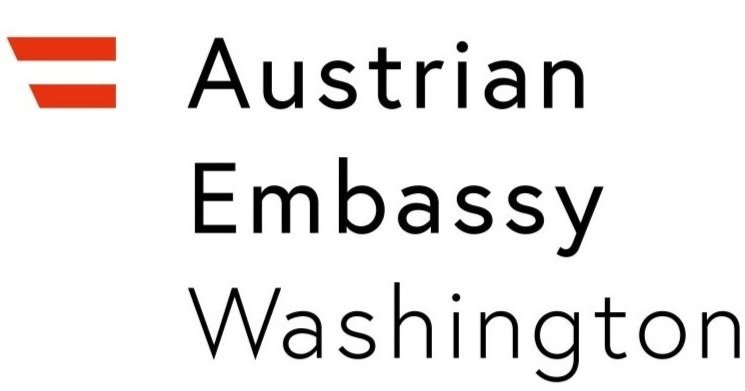Quantum Technologies and Geopolitics: Austria’s Role in a New Era
Emerging deep tech fields such as quantum technologies, artificial intelligence, and biotechnology are reshaping global power structures. The race for technological supremacy is not just an economic competition, it has profound political and security implications. As the world has embarked on the International Year of Quantum Science and Technology 2025, this moment provides a crucial opportunity to reflect on the geopolitical dimensions of quantum technologies and their impact on international relations.
Austrian Quantum Diplomat, Claudia Reinprecht, at the UNESCO Opening Ceremony for the International Year of Quantum 2025 on February 4, 2025 at the UNESCO Headquarters in Paris.
Photo: © UNESCO/Marie ETCHEGOYEN
The Transformative Power of Quantum Technologies
The world is at the cusp of the second quantum revolution. The first groundbreaking findings of quantum mechanics in the 20th century – Austrian physicist Erwin Schrödinger played a key role in shaping them - changed our theoretical understanding of matter and caused Albert Einstein to grow many gray hairs. Quantum physics has long since become part of our everyday lives. Modern computers, transistors and lasers would be unthinkable without it. But today, new areas of application are emerging, from quantum cryptography (a particularly secure form of encryption) and highly sensitive quantum sensors to the dream of information technology: the high-performance quantum computer, which solves previously unsolvable problems and will usher in a new era of communication and information that will significantly transform the digital age of today. Applications in quantum computing, communication, and sensing could offer breakthroughs in all sectors that will reshape industries, enhance security, and open new frontiers in science and technology, marking a significant shift in global innovation.
Despite still being in an early stage of development, investment in quantum research and development is scaling up rapidly. Global public funding for quantum technologies reached approximately $40 billion underscoring the strategic importance of quantum technologies in global affairs.
Opportunities and Risks
While quantum technologies promise significant benefits, they also pose substantial risks. The unique capabilities of quantum computing, for example, could undermine current encryption methods, jeopardizing data security and critical infrastructure. The development of quantum systems may widen the technological gap between nations, exacerbating geopolitical tensions and economic disparities. Additionally, quantum technologies raise new ethical and human rights concerns, such as the potential erosion of privacy and the implications for democratic governance and international stability.
Quantum Technologies from a Foreign and Security Policy Perspective
Given the societal risks and the transformative potential of quantum technologies, a proactive anticipatory global governance framework is essential. Quantum technologies must be developed in a way that balances open science with legitimate security considerations, ensuring they contribute to sustainable development while safeguarding human rights and democratic values. Some key aspects of a foreign and security policy approach to quantum that need to be addressed include:
Geopolitical Implications: The increasing tech rivalry among major powers affects global cooperation and multilateralism, with the risk of reinforcing existing technological divides – the quantum divide.
Geoeconomics and market development – At the intersection of quantum technology development with economic security and market development in the evolving geopolitical landscape, export controls and investment screenings (foreign direct investment and outbound investment screening) as well industrial policies are shaping how global markets develop. Public procurement, IP, work force development and retention are key considerations.
Security and defense considerations: Quantum technologies have implications for cybersecurity, hybrid threats, and the future of warfare, raising questions about peace and security, international law, arms control, non-proliferation and disarmament.
Governance and Ethical Considerations: Quantum governance will need to address ethical dilemmas and technology access issues, ensuring equitable participation in quantum advancements.
Quantum Internet
Photo: H. Ritsch
Austria’s Role in Quantum Tech Diplomacy
Austria is well-positioned to play a leading role in shaping global discussions on quantum diplomacy. Currently, there are no intergovernmental discussions on quantum technologies governance taking place on a global level. We have therefore introduced, together with strategic partners, a new initiative on the ethics of quantum technology in UNESCO, the UN organisation that is charged with the exploration of ethical aspects of sciences and technology. In addition, the Austrian Foreign Ministry and the Austrian Ministry of Defense have embarked on a joint project with the Stockholm International Peace Research Institute (SIPRI), one of the leading think-tanks on conflicts, disarmament and arms control, to explore the peace and security dimensions of quantum technology, yet another unchartered territory in the international arena. Furthermore, the Austrian Foreign Ministry’s #TechDiplomacyTalks initiative provides a platform for deepening the understanding of how emerging technologies impact international relations. Within this framework, the upcoming event series "Beyond the Digital Age: Dimensions of #TechDiplomacy in a Quantum World" will explore the intersection of quantum technology, geopolitics, innovation, and governance.
The series will focus on key topics such as:
Quantum diplomacy and global governance
European quantum strategies and policies
Peace, Security and defense dimensions of quantum technologies
Market development, commercialization, and innovation ecosystems
Legal, regulatory, and ethical considerations
These discussions will not only contribute to Austria’s strategic positioning in quantum diplomacy but also support the broader European and international efforts in ensuring responsible and inclusive quantum development.
The Path Forward
Key questions remain on how to navigate the emerging quantum landscape:
How can Austria and Europe remain competitive and engage in international cooperation while ensuring its economic security and technological sovereignty?
What balance should be struck between international cooperation and technology protection in an increasingly volatile geopolitical environment?
How can quantum technology markets be developed responsibly to benefit society and humanity at large?
What governance frameworks are needed to address quantum technology’s unique challenges? How to close the technology divide?
How can public diplomacy enhance awareness of quantum technologies’ potential and risks?
Quantum technologies represent both an opportunity and a challenge for global governance. As we move "Beyond the Digital Age," Austria has the chance to shape the debate, foster responsible innovation, and ensure that quantum advancements serve the common good. By integrating quantum diplomacy into its broader foreign policy agenda, Austria can help build a more secure, inclusive, and innovation-driven future.


